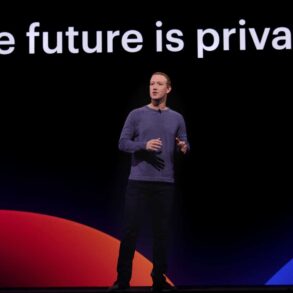
It doesn’t matter so much how long the kids are on social media. It’s how they use social media that’s important. Passive use of social media can lead to greater loneliness – not intensive use, according to a new study by the EU Commission’s Joint Research Centre (JRC). Despite discussions and concerns about technology’s impact on youth, many teens are as digitally connected as ever. Nearly half are online almost constantly, according to a new US survey by Pew Research Centre.
The EU commission president, Ursula von der Leyen, recently announced that “an EU-wide inquiry on the broader impacts of social media on well-being“ of young people will be launched.
Passive consumption of social media seems to reinforce feelings of disconnection, according to the JRC policy brief which examines the relationship between social media use and loneliness.
“In-person communications have dropped concomitantly to the drastic increase in the time spent online, which has led many to question the potential impact of social media on wellbeing in general and loneliness in particular”, the EU study says.
The JRC study, which examines social media use patterns across Europe, says that approximately 34.5% and 26.1% of respondents aged 16-30 use social networking sites and instant messaging tools for more than two hours per day.
Over one-third of young users show social media addiction like neglecting work, family or school for social media use multiple times a week. For those aged 31 and above, these figures are significantly lower.
“The empirical analysis suggests that spending more than two hours daily on social networking sites is associated with a substantial increase in loneliness prevalence, but the results also point to a critical distinction.”
“While intensive passive use of social media correlates with greater loneliness, there is no significant association between intensive use of instant messaging tools, or between active use of social media and loneliness.”
“This distinction points to the fact that the type of engagement, not just the time spent on it, is a key factor in whether social media has an effect on loneliness.”
The Pew Research survey shows that Alphabet-owned YouTube tops the list of online platforms. Nine-in-ten teens report using the site, slightly down from 95% in 2022.
TikTok, Instagram and Snapchat remain widely used among teens. Roughly six-in-ten teens say they use TikTok and Instagram, and 55% say the same for Snapchat.
Facebook and X use have steeply declined over the past decade. Today, 32% of teens say they use Facebook. This is down from 71% in 2014-15, though the share of teens who use the site has remained stable in recent years.
17% of teens say they use X (formerly Twitter) – about half the share who said this a decade ago (33%), and down from 23% in 2022.
Roughly one-quarter of teens (23%) say they use WhatsApp, up 6 percentage points since 2022.
14% of teens use Reddit, a share that has remained stable over the past few years. Threads, launched by parent company Meta in 2023, is used by only 6% of teens.
73% of teens say they go on YouTube daily, making YouTube the most widely used and visited platform. This share includes 15% who describe their use as “almost constant.”
About six-in-ten visit TikTok daily. This includes 16% who report being on it almost constantly.
Roughly half of teens say they go on Instagram or Snapchat every day, including about one-in-ten who say they’re on each of these platforms almost constantly.
The share of teens who say they use Instagram almost constantly has increased slightly, from 8% in 2023 to 12% today.
Relatively few teens report using Facebook daily (20%).
Moonshot News is an independent European news website for all IT, Media and Advertising professionals, powered by women and with a focus on driving the narrative for diversity, inclusion and gender equality in the industry.
Our mission is to provide top and unbiased information for all professionals and to make sure that women get their fair share of voice in the news and in the spotlight!
We produce original content, news articles, a curated calendar of industry events and a database of women IT, Media and Advertising associations.






